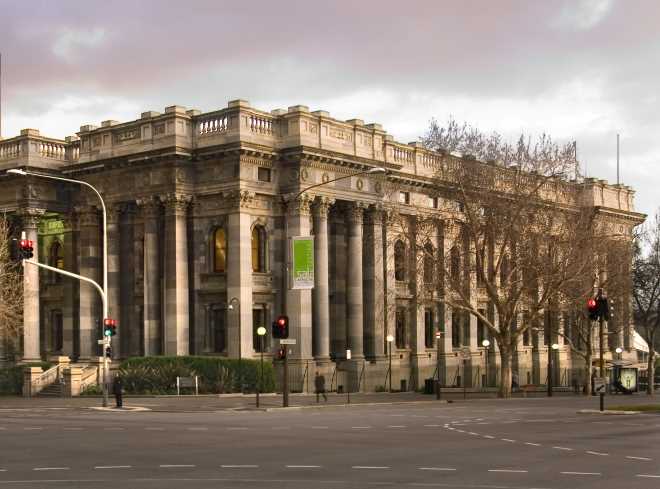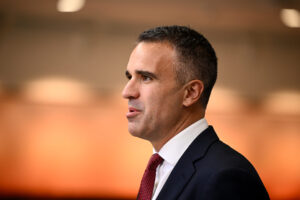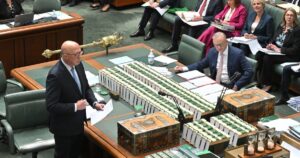Secretive and rushed: Unpacking SA’s new electoral laws

As dramatic changes to South Australian electoral law pass the house of review (Legislative Council), voters could be forgiven for wondering “what just happened?”
A week ago, no one had seen the government’s revised Electoral (Accountability and Integrity) Amendment Bill 2024. Now, it’s set to become law.
Amy Remeikis and the Director of The Australia Institute’s Democracy and Accountability Program, Bill Browne, unpack how we got here … and what should happen next.
Following in the tradition of parentheses bill names, which attempt to frame how a bill is thought about by voters and therefore prevent closer looks, the Electoral (Accountability and Integrity) Amendment Bill 2024 seeks to amend the state’s donation laws.
The reforms are being billed as a way of removing political donations from election campaigns and ending political fundraising during state election campaigns. In place of those donations, the Australia Institute estimates between $15 million and $20 million in public funding will be shared among political parties and candidates for elections.
The government says it will “restructure the public funding model, increase administrative funding, introduce an advance payment scheme, amend party registration and nomination requirements” and insert new definitions into the legislation, including for the term, ‘donation’.
All of that sounds great. Attorney-general Kyam Maher says it will “help to ensure power is kept in the hands of voters and give both established and new voices an equal footing in state elections”.
What does it actually do?
Here is where we get to those pesky details. Director of the Democracy and Accountability Program at The Australia Institute, Bill Browne, has taken a pretty long look at the bill and found some small print the big headlines haven’t gone into.
Of the extra $15-$20 million in public funding for politicians per electoral cycle, about 75% of the money would go to the major parties. New candidates and entrants to the electoral cycle will only receive about 1 or 2% of that money. That is because the way the legislation is worded, most new public funding in the bill is based on the number of MPs a party has in the SA Parliament, rather than the amount of public support they enjoy, or how many members a party might have.
The bill will also cap how much private money independent candidates and minor parties without existing parliamentary representation can raise, while giving them much less public funding than incumbents – the MPs and parties already represented in parliament.
That’s not exactly ‘leveling the playing field’.
MPs and political staffers can still pay what’s known as a ‘levy’ to their party, which is one of the traditional ways political parties can fundraise – and historically, these ‘levies’ can raise more money than private donations.
At the same time, third parties, like corporations and lobby groups, can spend large amounts on election campaigning. They can take the money they would have donated to a political party, and spend it on their own political ad campaign.
How did this happen?
Instead of going through the usual review process in which legislation is sent to an inquiry where these sorts of issues can be probed and examined, and then recommendations to fix them are made, the South Australian Labor government instead consulted behind closed doors with existing political players.
The government was trumpeting its legislation as having multi-party support, and rushed it through the upper house. But it makes sense those already in the parliament would, for the most part, like this bill – it benefits them while making it very difficult for anyone wanting to challenge the current system to enter.
We have seen this play out before.
In 2021, the South Australian Parliament rushed through changes to the Independent Commission Against Corruption (ICAC) which significantly altered the powers the watchdog held, rendering it all but toothless. That included limiting the definition of ‘corruption’ to specific offences related to public officers.
What needs to happen to fix this?
It is not too late to have a proper inquiry into the legislation, where people can make submissions on what needs to be done to make the bill fairer, and actually increase transparency and integrity around these reforms.
It’s one thing to call your bill “Accountability and Integrity” legislation, but it’s quite another to actually walk the walk.
Having the bill considered through a proper public review will at least allow experts to air some of these concerns and allow South Australians a say in what is a major change to their democracy.
The reforms are being sold as increasing accountability and integrity around political donations and election campaigns – so what do they have to hide?
Between the Lines Newsletter
The biggest stories and the best analysis from the team at the Australia Institute, delivered to your inbox every fortnight.
You might also like
South Australia’s leap into the unknown with political finance changes
July 1 marked a dramatic change in how political parties and candidates are funded in South Australia.
The election exposed weaknesses in Australian democracy – but the next parliament can fix them
Australia has some very strong democratic institutions – like an independent electoral commission, Saturday voting, full preferential voting and compulsory voting. These ensure that elections are free from corruption; that electorate boundaries are not based on partisan bias; and that most Australians turn out to vote. They are evidence of Australia’s proud history as an
Rushed, secretive and dismissive – the dirty deal which degrades our democracy
Last night the federal Liberal Party announced it had done a deal with the Albanese Labor Government on electoral laws – and, this morning, it became law, having been rushed through both houses of Parliament.

